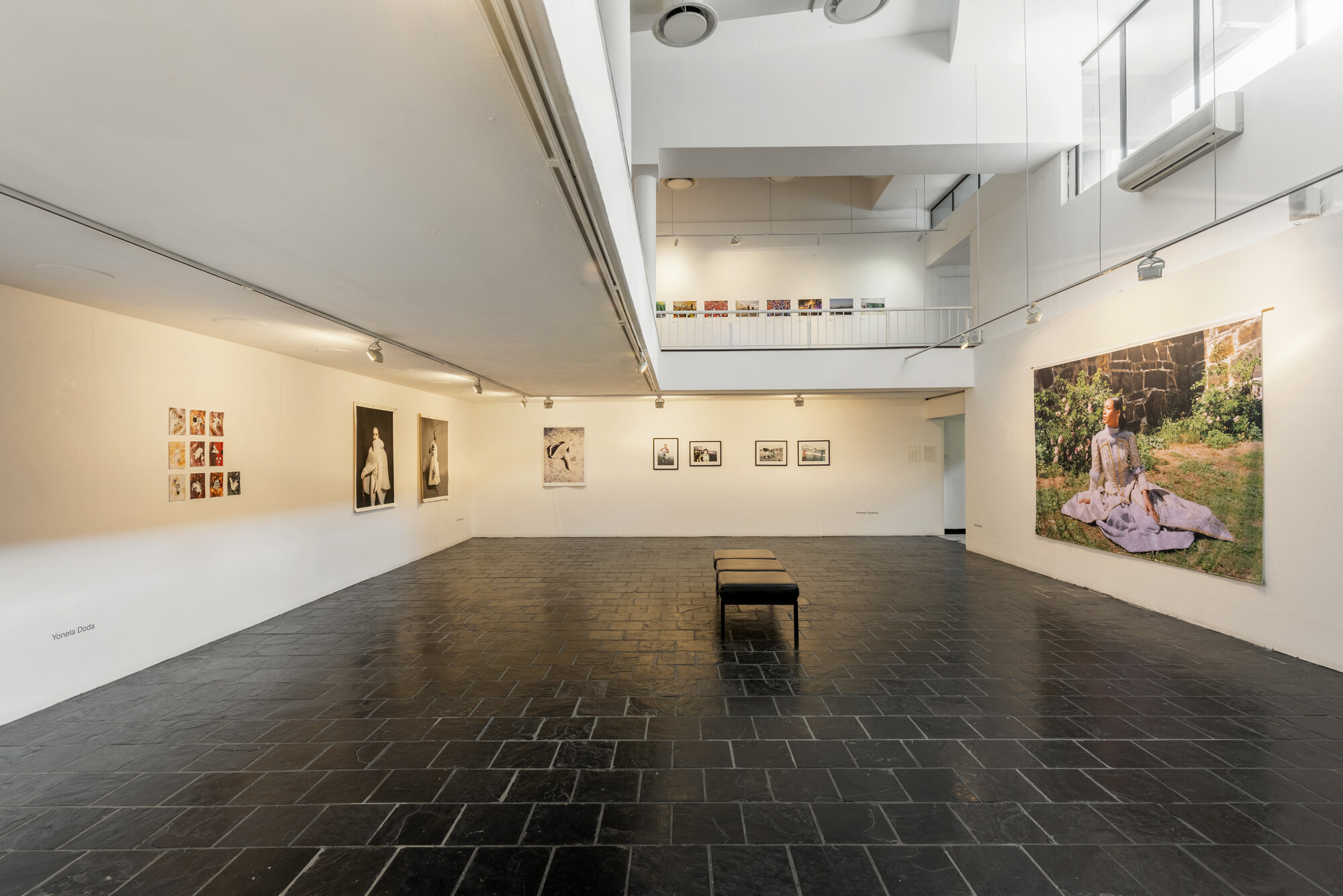Past Present Currents
Presented by Re-curators
An ArtReach co-production
22.04.21 - 27.05.21
Main gallery
Photography is embedded with unconscious bias. In the contemporary, algorithmic disparities have been identified in digital imaging technology, most glaringly when dark skin becomes invisible to facial recognition software. This is the same software that is used for loan decisions and job interview searches. As the world relies more heavily on digital technology in the wake of the COVID-19 pandemic, the biases embedded in photography are becoming more and more apparent.
Historically, lighter skin tones have been categorized as the norm, leaving darker skin to require special corrective care. As a result, photographing brown skin against light colours has proven to be challenging for plenty of photographers. In the 1960s and 1970s, photography and commercial print company, Kodak, began to rectify these issues after receiving complaints from chocolate and furniture companies that colour photography could not capture the range of brown tones on their products. It is quite bizarre that the technology of photography was improved for advertising purposes, instead of actual Black and brown people.
As an art form and medium, photography requires a wealth of knowledge in calibrating light. Light skin has been the chemical baseline for film technology. This illustrates how racism was inherently built into the medium. Despite the strides that colour photography has taken to depict more accurately a wider range of skin tones, photography is still a series of subjective decisions that can undermine the agency of the figures captured. We can trace this back through anthropological strategies of Othering, to the daguerreotypes and objectification and/or exoticisation of Black people in visual culture.
Today, young Black photographers and lens practitioners have to grapple with an inherently problematic medium. Past Present Currents is interested in the continued subversions and reappropriations of such historicities. The exhibition calls attention to the urgent need to reassess antiquated photography traditions relating to Blackness, representational politics, and concurrently, perpetual violence where the quest for justice is concerned in intersectional movements such as Black Lives Matter and the struggle against gender-based violence in South Africa.
This exhibition, presented by Re-curators Curatorial Collective, is concerned with expressions of freedom and the opacity of Blackness and sexualities: consenting to not be a single being (Fred Moten, 2017). The featured artists - Jody Brand, Kim Makin, Vanessa Tembane, Yonela Doda and Yonela Makoba - meditate on Black personhood through photo assemblages and photography.
Brand revisits historic sites of trauma in her photography, placing African, queer and femme individuals in the foreground of these sites. The work traces matrilineal narratives, echoing resilience instead of silence and shame.
Makin is concerned with apartheid’s legacies of racial categorisation. Her internal struggles are reflected in the restless and nervous state of her work. In a harrowing sonic piece, she makes an attempt to escape the pantyhose that covers her body. The choice of material is layered with connotations of femininity and colourism, subjects she has explored throughout her work.
Tembane’s work explores the intersections of being Black and woman in South Africa, as well as Mozambican. Her collage merges family photographs taken in Mozambique and South Africa with details of capulanas, a fabric worn as a wraparound skirt or baby carrier in Mozambique. She reconstructs her own version of home through imagined memories to achieve a sense of belonging.
Meanwhile, Doda presents re-constructed and deconstructed images of the body. Through the use of a needle and thread, she presents a recollection of memories that explores sexuality and intimacy.
Makoba places themself, as a Black, femme and queer person, at the centre of their image-making, while connecting with the spiritual world. Referencing Butoh, a Japanese dance that signifies the cycle of life and death, Christianity and African epistemology, the artist makes a comment on spirituality, eroticism, gender and power across geopolitical lines.
The artists transgress and produce artwork that illustrates and interrogates the multitudes of Black femme subjectivity. Collectively, their photographic and installation meditations speak to the agency of representing oneself.































Download the catalogue here
Re-curators Curatorial Collective
Re-curators Curatorial Collective is interested in developing and cultivating research and artistic methodologies around Black cultural production in Africa and its diaspora. The collective, founded in 2018 in an Honours Curatorship course, is broadly interested in quests of Black liberation. Through a decolonial approach as its operational framework, the collective's scope includes curatorial projects such as exhibitions, workshops, publishing, artist management, art advising and acquisitions, as well as research.
Participating artists: Yonela Doda, Jody Brand, Yonela Makoba, Vanessa Tembane, Kim Makin
This exhibition supported by the National Arts Council

